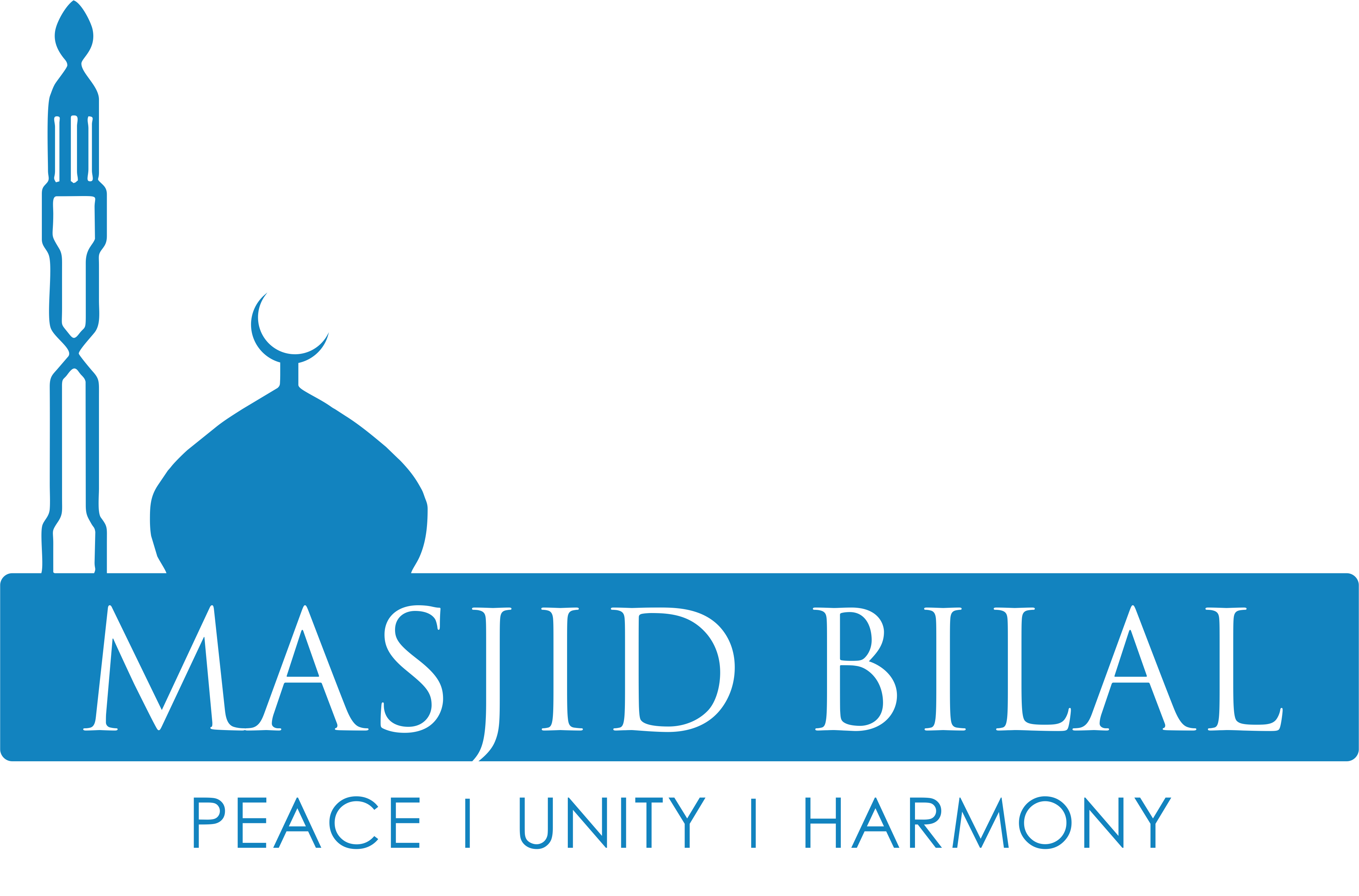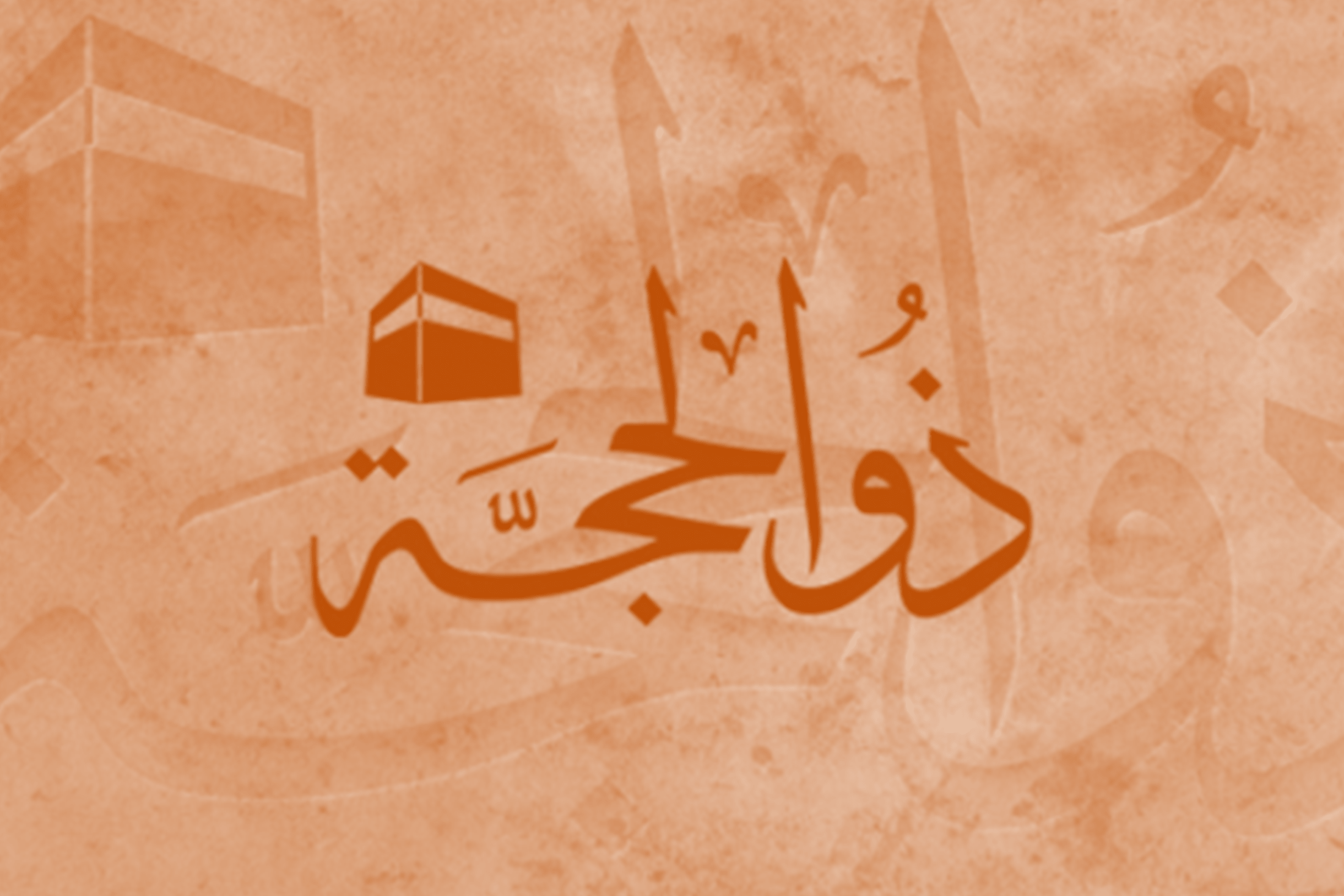Article taken from: The Benefits and Sunnah of the First Ten Days of Dhul Hijjah | Muslim Hands UK
This year, Dhul Hijjah will begin from Maghrib on 10th July 2021.
The first ten days of Dhul Hijjah are almost upon us and we don’t want to miss out on a single blessing. Just like the last ten nights of Ramadan, these ten days are crammed with opportunities to earn reward.
The Prophet (saw) said, ‘There are no days in which righteous deeds are more beloved to Allah than in these (ten) days’. [Abu Dawud]
We’ve put together these simple tips for following the Sunnah and earning reward during Dhul Hijjah:
Do dhikr (remembrance of Allah)
Let’s begin with a simple yet effective action – increasing your dhikr. In Makkah, the Talbiyah will be on every pilgrim’s tongue throughout the day and night; those at home have also been commanded to praise Allah constantly in these ten days.
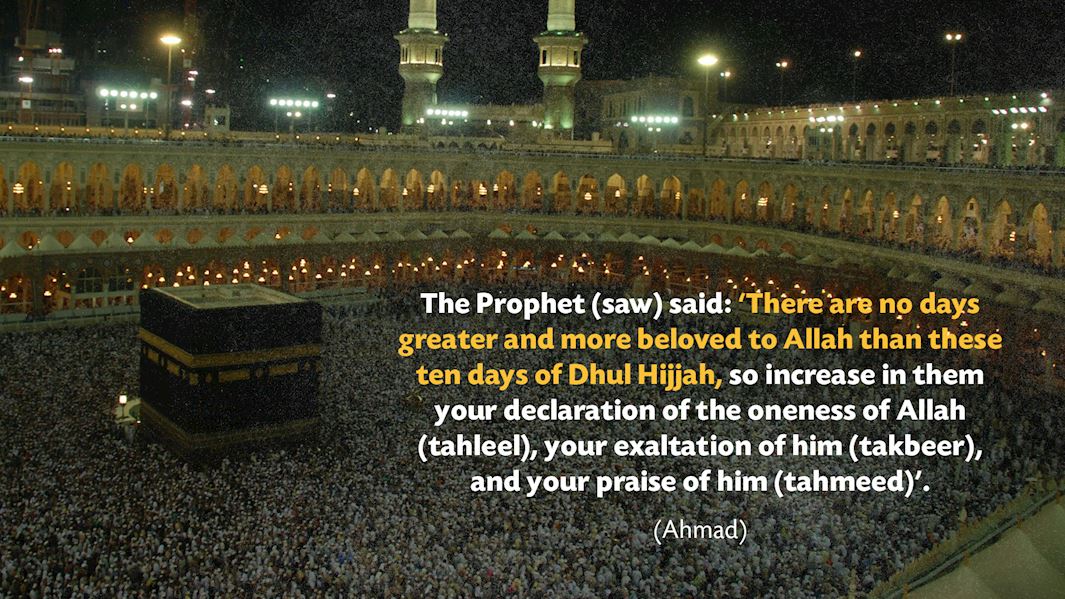
The Eid takbeer is an example of dhikr that ticks all three of these boxes – tahleel, takbeer and tahmeed.
You can also make dhikr after your five daily prayers – Subhan-Allah 33 times, Alhamdulillah 33 times, and Allahu Akbar 34 times.
Reciting Subhan-Allahi wa bihamdihi (Glory be to Allah and praise Him) one hundred times a day will wipe away sins – no matter how burdensome they are.
These simple measures will ensure you are remembering Allah throughout the day and benefitting from the blessings of Dhul Hijjah.
Erase all your sins
One of the most amazing things about Hajj is that, if your Hajj is accepted from you, your sins are completely erased and you are once more as pure as a newborn. But is there anything non-pilgrims can do to seek forgiveness on such a large scale during Dhul Hijjah?
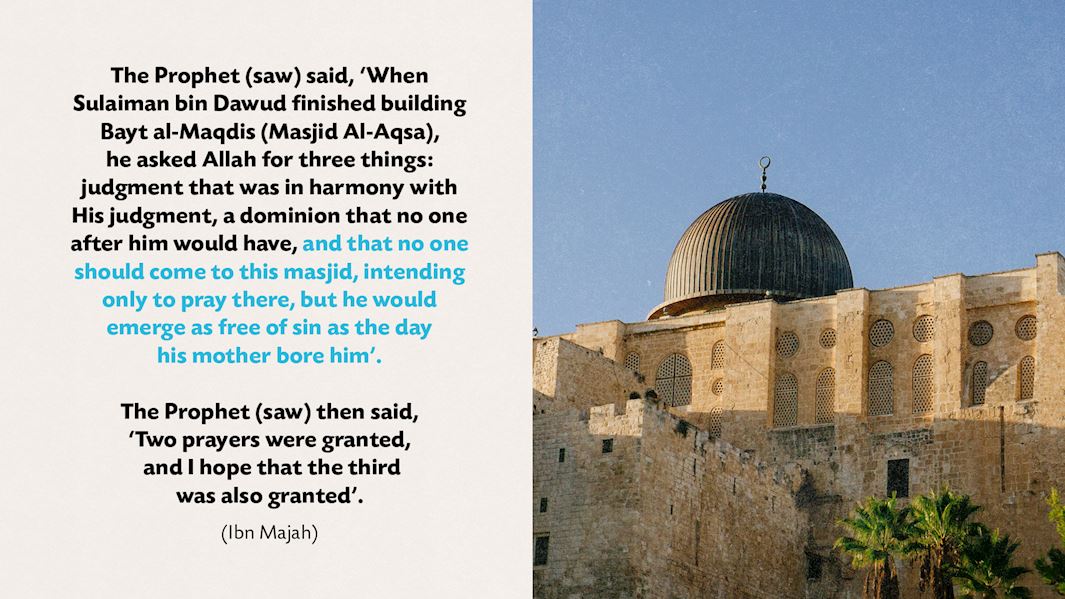
The answer is – yes! Just like making Hajj to Masjid Al-Haram (the Ka’bah), praying in Masjid Al-Aqsa carries the amazing blessing of having all your sins wiped out.
Pray at night – and fast during the day!
It’s been two months since the last ten nights of Ramadan, and many of us are missing the ‘spiritual high’ of seeking out Laylat al-Qadr through our nightly worship. But did you know that praying at night for the first ten nights of Dhul Hijjah is equivalent to praying on Laylat al-Qadr?
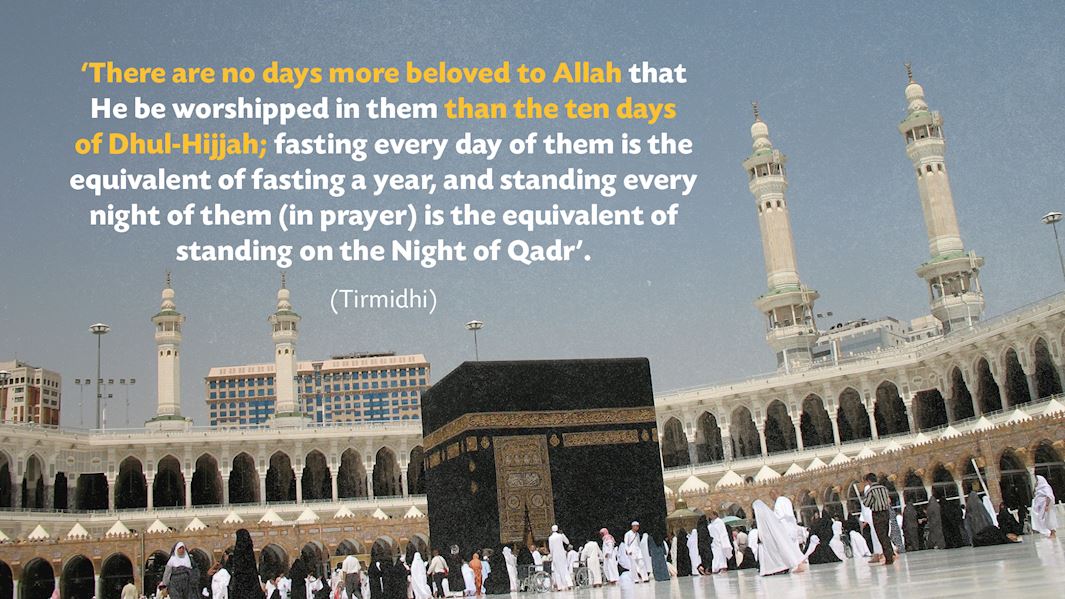
The above hadith shows that Allah loves to be worshipped on these ten days, and one of the best ways to ensure you maximise your worship is by fasting all day and praying Tahajjud at night! When you sacrifice food, drink and sleep for Allah’s sake, you are truly reaping the benefits of these blessed days.
Fast on the Day of ’Arafah
If you are unable to fast for the whole ten days, try to fast on just the Day of ’Arafah, the 9th of Dhul Hijjah. Just as Laylatul Qadr is the most blessed night of the year, ‘Arafah is the most blessed day of the year. The Prophet (saw) said, ’There is no day on which Allah frees more people from the Fire than on the day of ‘Arafah’. (Muslim)
Like Laylatul Qadr, we should spend this day seeking forgiveness and availing ourselves of Allah’s incredible mercy. On this day, non-pilgrims have the opportunity to extinguish the sins of two years by fasting! The Prophet (saw) said, ′It (fasting on the Day of ‘Arafah) expiates the sins of the past year and the coming year’. (Muslim)
Give more Sadaqah
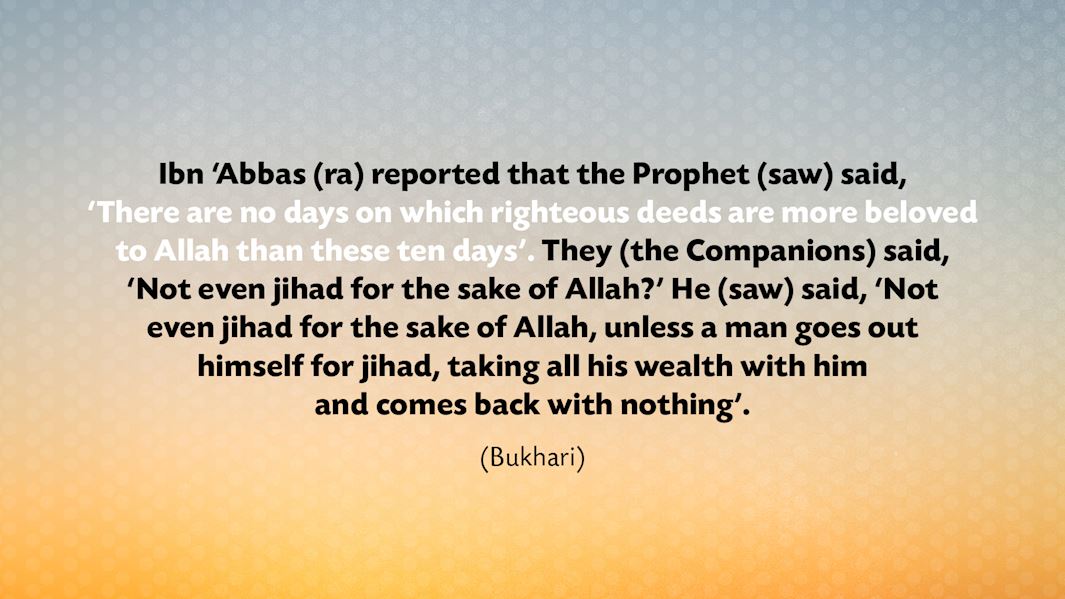
Not only are these the most beloved days to Allah – but He loves to be worshipped on them, and for us to put extra effort into doing good deeds during these days. Whether you’re helping around the house more, making a loved one a cup of tea, or simply smiling at your family, friends and colleagues – these actions become more valuable during the first ten days of Dhul Hijjah.
Many of us maximise our Sadaqah during the last ten nights of Ramadan, but the first ten days of Dhul Hijjah are just as valuable. Don’t miss out on this incredible opportunity to earn extra rewards for simple good deeds!
Give a Prophetic Qurbani
Abu Talhah (ra) reported, ‘The Prophet (saw) sacrificed for the one who could not sacrifice from his Ummah, one who bore witness to the Oneness of Allah and [his] Prophethood’. (Tabarani and Ahmad)
For those who are able to, following the example of the Prophet (saw) and giving this extra Qurbani is an excellent way to gain reward during Dhul Hijjah. Not only will you be reviving a forgotten Sunnah, you will be also doubling your impact by feeding even more families a rare meal with meat during the days of Eid-ul-Adha.
